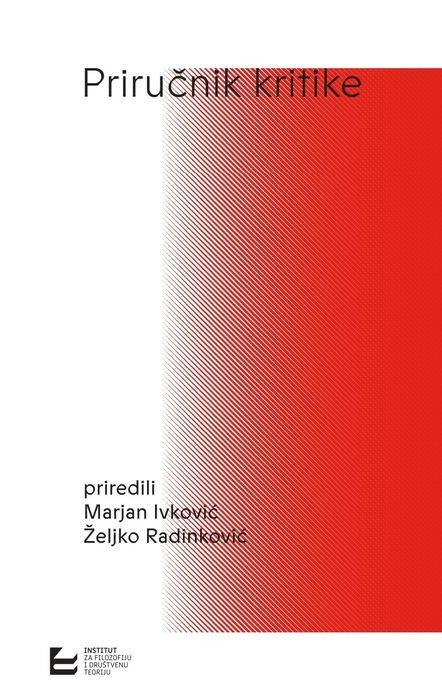Transcendentalna kritika
Transcendental Criticism
Author(s): Igor Cvejić, Olga Nikolić, Željko Radinković
Subject(s): 19th Century Philosophy, German Idealism
Published by: Institut za filozofiju i društvenu teoriju
Keywords: Transcendental Critique; Immanuel Kant; Transcendental Philosophy; Critique of Metaphysics; A Priori Knowledge; Wilhelm Dilthey; Edmund Husserl
Summary/Abstract: In this chapter, we will outline the development of the transcendental-critical approach in philosophy, starting with Kant's critical enterprise, which lays the foundation for transcendental philosophy by returning to the question of the constitutive conditions of the possibility of experience. Transcendental criticism was taken in new directions by neo-Kantians, Wilhelm Dilthey and Edmund Husserl, raising issues of criticism of scientific knowledge, separation of natural and spiritual sciences based on essential methodological differences (criticism of positivism, naturalism, psychologism...) and an adequate method for foundation of sciences. The sections dedicated to them also map the transformations of the transcendental method through its application to new fields, efforts for its adequate foundation, but also discrepancies in the way of understanding and applying the transcendental method. Finally, the limits of the transcendental approach, which become visible in Heidegger's (Martin Heidegger) philosophy, are discussed, offering a critical review of the possibilities and limitations of transcendental philosophy in understanding human existence and experience.
Book: Priručnik kritike
- Page Range: 71-98
- Page Count: 28
- Publication Year: 2023
- Language: Serbian
- Content File-PDF

